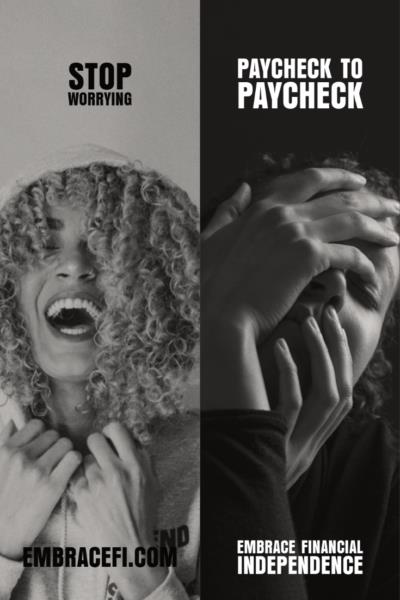6 Mins Reading Time
I spend much of my early adulthood scraping by and waiting for my next check to come in so I could cover basic expenses. The problem is that I was making more than enough money to get by but I wasn’t responsible with it. I had a good job right out of college and my overhead wasn’t all that high.
But I never seemed to have anything left over at the end of the month. My hope with this post is that I can help you keep from making the same mistakes I did in my twenties.
With a little discipline and the steps outlined below, you can take charge of your finances and stop living paycheck-to-paycheck!
Create and Stick to a Budget
This is the most obvious step but it’s one that a lot of people don’t want to get on board with. The word budget isn’t sexy, neither is the idea of saving up for the things you want but don’t need. However, the perceived short-term downsides to being fiscally responsible are well worth any discomfort they may cause. Saving for the future, planning for the unexpected, and working towards lessening your debt will give you the kind of long-term financial stability that many people only dream of. You are in charge of your finances and you decide where your money goes. So, with that in mind, consider implementing a budget. For more detailed advice on how to create a budget, click here. Insert link.
Start an Emergency Fund
Starting an emergency fund may seem challenging to create if you’re new to budgeting. But let me assure you that it’s easier than you might think. And it may just save your bacon when the unexpected happens. An unforeseen automotive repair or trip to the vet can be devastating. But not if you have a well-stocked emergency fund for just such an occasion. If you’re wondering how to get started with an emergency fund, you can see my post on that very subject right here! Insert Link.
Work to Get to a Point Where You are Paying Your Bills in Advance, rather than After they Come Due
A lot of people wait for the first check of the month to cover their mortgage or rent payment. But that puts you in an unenviable spot from the get-go. Planning ahead and allocating funds to cover your monthly expenses before they are due will allow you greater flexibility and ultimately make it easier to adhere to your budget. Even paying your bills a day or two earlier each month (until you get to the point where you can pay them before they are due) can make a huge difference. Doing so allows you to get back on track at a pace that isn’t overwhelming.
Start an Emergency Fund
Starting an emergency fund may seem challenging to create if you’re new to budgeting. But let me assure you that it’s easier than you might think. And it may just save your bacon when the unexpected happens. An unforeseen automotive repair or trip to the vet can be devastating. But not if you have a well-stocked emergency fund for just such an occasion. If you’re wondering how to get started with an emergency fund, you can see my post on that very subject right here! Insert Link.
Work to Get to a Point Where You are Paying Your Bills in Advance, rather than After they Come Due
A lot of people wait for the first check of the month to cover their mortgage or rent payment. But that puts you in an unenviable spot from the get-go. Planning ahead and allocating funds to cover your monthly expenses before they are due will allow you greater flexibility and ultimately make it easier to adhere to your budget. Even paying your bills a day or two earlier each month (until you get to the point where you can pay them before they are due) can make a huge difference. Doing so allows you to get back on track at a pace that isn’t overwhelming.

